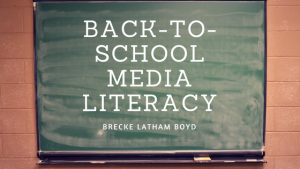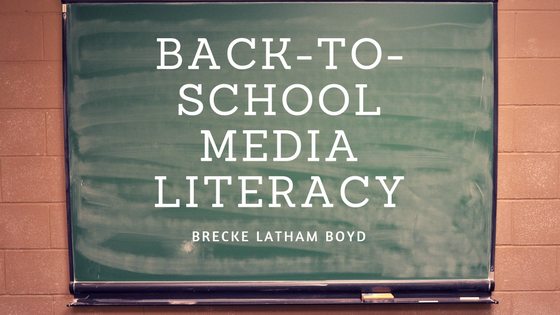 It’s getting to be back-to-school time again. In addition to all the frantic shopping that parents are doing to prepare their kids for a fresh school year, parents also spend these last precious days and weeks mentally and emotionally preparing their students for the realities of the social scene. From bullies to the “popular kids” to respecting teachers and law enforcement officers, there’s a lot of precarious navigating that young people have to do in between — and often during — learning time.
It’s getting to be back-to-school time again. In addition to all the frantic shopping that parents are doing to prepare their kids for a fresh school year, parents also spend these last precious days and weeks mentally and emotionally preparing their students for the realities of the social scene. From bullies to the “popular kids” to respecting teachers and law enforcement officers, there’s a lot of precarious navigating that young people have to do in between — and often during — learning time.
This year, though, it’s more important than ever for parents to equip their kids with the tools to wade into the political thickets, social media swamps, and rumor weeds and come out the other side educated and unscathed. With the modern state of politics, the ubiquity of social media, and the crashing waves of information and data that enter people’s purview hourly, young people need some sound advice and a strong moral compass for determining who to trust and where to go for the facts. Here’s some ways you can equip your child for the upcoming school year emotionally and mentally.
Ask For Sources | Rumors get started because nobody fact-checks information, and stories get exaggerated at every retelling. As you prep your child for the realities of returning to their 8-3 schedules, encourage your child to pause and consider how they can verify what they’ve just heard. Can they Google the claim? Can they ask the subject of the story? Even in a classroom, it’s well within the etiquette of respectful discourse for your child to ask a teacher where a claim about a historical fact or statistic came from.
Find Out What Others are Saying | Critics all across the political spectrum have been accused of “cherry picking” their news sources and academic studies such that they cite only those that bolster their viewpoints and omit those that prove detrimental to their agenda. Teachers aren’t immune from this, and neither are kids at the mercy of rumor mills. If your child happens upon a claim that seems a little too good to be true or a story to which there may be multiple sides, urge your child to explore what dissenters are saying. Where is their information coming from? What are some of the underlying assumptions on any side of an argument?
Don’t Repeat Unchecked Info | As I’ve talked about lots and lots of times before, social media has exacerbated the issues of people spreading unverified information. Claims, accusations, and “discoveries” will cross your child’s consciousness all day long. In insular communities like school buildings, students determine their social standing by when word of a rumor hits their ears, and as such, it’s tantalizing for students to spread both current events or juicy personal details as soon as they hear it. Get your student in the journalistic mindset of seeking out truth and professionally-researched opinions before they report on it to their friends and Twitter followers.
